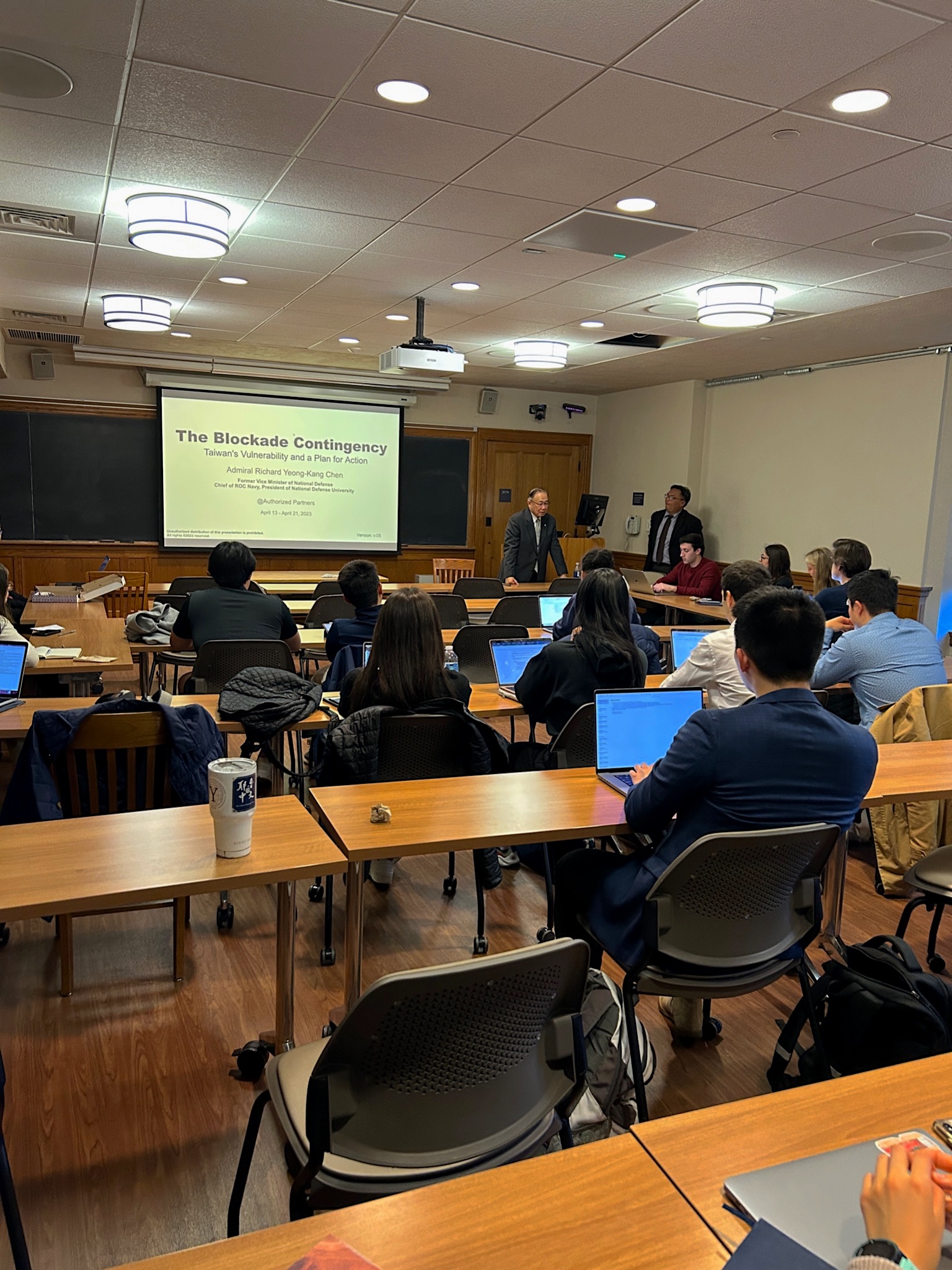Admiral Richard Chen talks Taiwanese blockade contingency plan
Yale Foreign Policy Initiative hosted Taiwanese military officials to discuss U.S.-China-Taiwan relations this week.

Courtesy of Yale Foreign Policy Initiative
As Western government officials grow increasingly concerned about the possibility of Chinese military action around the South China Sea, Taiwanese Admiral Richard Chen shared his nation’s contingency plan for a Chinese blockade of the Taiwan Strait.
The Yale Foreign Policy Initiative hosted Chen, Yale Law School visiting fellow Jason Hsu and Rear Admiral Hope Yuan in Linsly-Chittenden Hall on Apr. 18 to discuss the future of U.S.-China-Taiwan relations and the economic, military and societal factors at play in ongoing diplomatic efforts.
Chen, a former Vice Minister for Policy of Taiwan’s Ministry of National Defense, told the roughly 30 attendees that Taiwan is much more vulnerable to a naval blockade than an amphibious invasion because the western coast of Taiwan does not have suitable beaches for a large-scale naval landing.
“Taiwan is highly vulnerable to a blockade,” Chen said. “We need to cooperate with all the surrounding countries, not only sharing the risk, but also sharing energy support and making sure critical infrastructure is safe.”
Chen explained that a potential Chinese blockade could cut off much of East Asia from global supply lines that run through the Taiwan Strait. As a result, Chen said, “nobody is a winner” if China blockades the Strait — including China itself.
Chen argued that Taiwan therefore needs to increase its current stockpiles of energy, food, defensive weapons and medical supplies in preparation for this contingency.
“I think it’s important to assess the Taiwan contingency realistically instead of worrying about an amphibious landing… We need to focus 95 percent of our resources on developing Taiwan’s resiliency and energy sustainability, as well as our mentality and will to fight,” Hsu said.
He added that in the event of a blockade, Taiwan would have to plan for operational support from the United States to support morale and force China to end the blockade. Chen argued that China would “not be able to compete” against the U.S. Navy in a blockade since the Chinese Navy has far fewer experienced naval aviators.
Chen warned that governments and commercial organizations across the globe would be forced to respond to the potential closing of a strait through which roughly half of the world’s container ships pass.
According to event organizer Ethan Chiu ’26, the Yale Foreign Policy Initiative invited Chen to share his perspective on China and Taiwan after Hsu arranged for the admiral to work on semiconductor and AI governance projects in New Haven.
Howard Shi ’25, who attended the event, told the News that the talk was an important space to hear informed perspectives on the China-Taiwan relationship.
“It’s really cool to meet someone like [Chen] in person,” Shi said. “I took the course ‘The Rise of China’ last semester and found a lot of shared perspectives between the class and Admiral Chen’s presentation,” Shi told the News.
Nearly 24 million people currently live in Taiwan.







